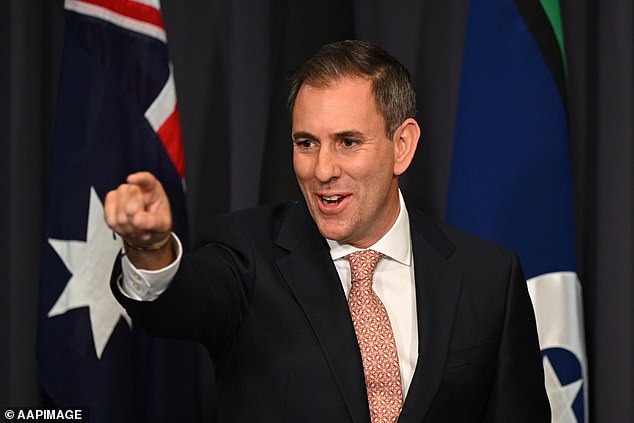How Albo & Co. Are Evading the Giant New Super Tax—and Overlooking Its Clear Flaws
- A new tax will be imposed on paper profits within superannuation accounts.
- Must begin making payments once the balance hits $3 million.
- MPs with long service won't be required to make payments until they retire.
The Prime Minister has exempted both himself and other recipients of substantial parliamentary pensions from the new enhanced retirement tax that applies to all others.
The fresh tax on uncrystallized super profits mandates immediate payment once individuals hit the taxable limit for others. However, not so for our Albo—he gets to postpone his payments until post-retirement.
This is a typical scenario where politicians establish one set of rules for their own conduct and an entirely different set for the rest of us.
According to the impending new legislation, individuals with a substantial balance exceeding $3 million will be required to pay taxes on unrealized gains annually. This might necessitate selling portions of their investments solely for covering the tax liabilities.
The Prime Minister and other recipients of the traditional parliamentary super scheme are excluded from this rule.
They only need to make this payment upon retiring when they become eligible to receive the funds, at which point they will face a lower cost. inflation a rate comparable to the government bond rate.
The opposition has charged the Labor Party with exhibiting double standards, an accusation that holds water.
Nevertheless, several Liberal Members of Parliament continue to linger in parliament and they too are eligible for the old pension plan, thus benefiting similarly to how Albo does.

This encompasses new Liberal leader Sussan Ley, who joined Parliament in 2001, two years prior to the abolition of the old parliamentary pension scheme for incoming members initiated by John Howard.
A representative for Treasurer Jim Chalmers attempted to deflect criticism using vague and disjointed explanations to defend the favorable tax treatment for the Prime Minister and other political allies. However, it’s clear that Chalmers has included a specific clause in the new legislation designed to benefit those close to him, including his superior.
The proposed tax will be presented to Parliament once it reconvenes at the end of July.
Of course the decision not to force holders of parliamentary pensions to pay the on-paper profits tax immediately is a sound one, because they can’t sell down that pension to cover the tax bill in the same way a standard super holder can.
Members of parliament like Albo might have to offload additional possessions to settle their debts, which is quite a significant demand.
However, that’s exactly why the introduction of this new tax is considered poor policy, with specialists deeming it 'deficient'.
Nevertheless, Labor continues to move forward with this plan despite growing concerns from various sides over the past few weeks.
Even ex-Treasury chief Ken Henry and past RBA governor Phillip Lowe have voiced their worries.

Although Labor claims that this new tax will initially affect only a limited number of taxpayers whose superfunds exceed $3 million, this situation won't last. Since the threshold isn't adjusted for inflation, an increasing number of Australians will eventually find themselves subject to this levy as time goes on.
AMP estimates that by the time Generation Z hits retirement age half of its population will be forced to fork out for the tax unless the $3m threshold is indexed. Labor says it won’t be.
Treasury estimates that it will earn $40 billion from the tax over the next decade, with much of that coming in the latter part of that time frame when many more people will be hit by it.
Critiques of the updated taxation system extend further than just the absence of indexing.
This description also highlights that it disproportionately affects women since they typically contribute less to their superannuation during periods when they leave the workforce to raise children. Additionally, women tend to live longer than men, which makes them more dependent on those savings as an essential financial resource in retirement.
When a woman’s spouse passes away before her, typically his superannuation gets transferred into her account. If this addition causes her total balance to exceed $3 million, then she will have to pay a new 30% tax on the amount she has inherited that goes above this threshold.
Hence, certain tax specialists have referred to it as a 'widow tax.'

Agriculturists and individuals utilizing their superfund for real estate investments will face significant challenges as well since these illiquid assets cannot be divided and liquidated to cover taxes. Should the assessed value decline in future years, unfortunately, the tax liability remains unaffected.
As demands for reforms to the new tax continue to rise, Labor has not yet shown any signs of revisiting its significant shortcomings.
The new Senate takes effect from 1 July and Labor has the support of the Greens - who will control the balance of power on their own - to legislate the change.
Don't expect any push for indexation out of them. Indeed, the Greens want the tax to kick in at $2million and may be able to negotiate that, even if Labor is adamant it will stick by the $3m threshold it took to the election.
Read more
Post a Comment for "How Albo & Co. Are Evading the Giant New Super Tax—and Overlooking Its Clear Flaws"